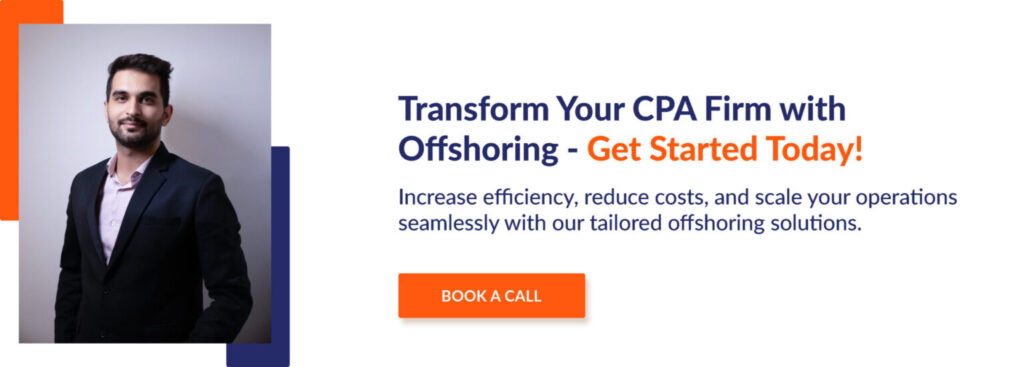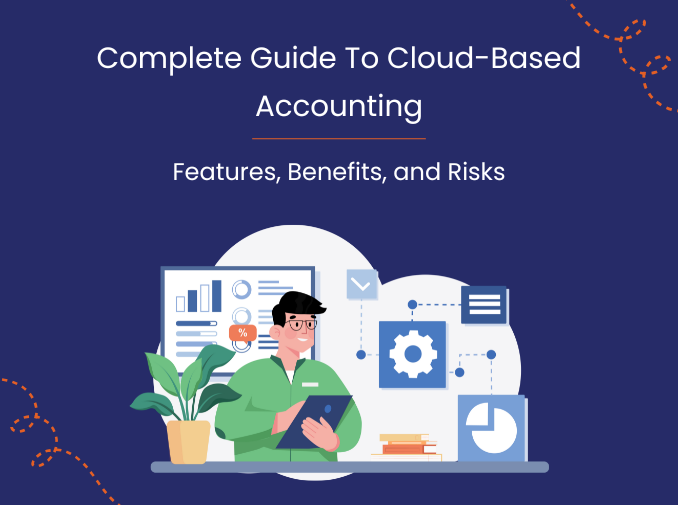More than 40 years ago, Intuit introduced its first accounting software, Quicken. This was hailed at the time as a game-changer. The accounting solution transformed the work of accountants. The system overtook the use of the conventional accounting tools and the old pen and paper.
It’s not often that a significant milestone completely changes the trajectory of an industry for the better. Over time, as accounting software got more advanced, the need for enhanced flexibility, real-time updates, and the convenience of network mobility brought with it cloud-based accounting. Much like the introduction of accounting software 40 years ago, cloud-based accounting revolutionized how the world of accounting performs everyday tasks. Its rise and widespread adoption have since been meteoric.
In this blog, we respond to some of the fundamental questions surrounding cloud-based accounting. For CPAs seeking greater flexibility with less capital outlays and more human resources maximization, this blog is a must-read.
What is Cloud-Based Accounting?
Cloud accounting entails processing financial activities, such as maintaining and balancing financial records, utilizing cloud software rather than a physical server for installation and maintenance. Cloud software may be a SaaS product like QuickBooks, Xero, Zoro, or FreshBooks.
The major advantage for users is that they can use the required tools online from their service provider rather than on a local server or device. Read below to discover more about how the cloud operates and how services enable the accounting profession.
How does Cloud-based Accounting Work?
In cloud accounting, the users such as accountants, bookkeepers or CFOs use a web browser or mobile application on laptops, smartphones, or tablets to access the system. The program frequently connects to company bank accounts, posting transactions automatically into the electronic ledger.
Users often get a visual dashboard displaying important financial data such as available cash, pending bills, or overdue amounts, with the data refreshing real-time and allowing for further analysis.
What are the most important features of Cloud-Based Accounting?
Since the use of cloud-based accounting, not only have the dangers that come with traditional accounting diminished, but the entire process has been made much easier, particularly for cloud-based small business accounting.
Although Cloud-Based Accounting has become the standard across the globe for small businesses as well, that wasn’t the way it used to be.
Accounting firms previously had their accounting system on premises, which was installed on the hard drive of the accounting department or run using physical servers owned by the firm. Below are some other features that accompanied it:
1. Access to Real-Time Data
The most important features of Cloud-Based Accounting are that it offers real-time views into key information, usually presented in easy-to-use dashboards. Allows companies to assess their KPIs, plan, and forecast future trends, hence avoiding unwanted problems through quicker decision-making.
2. Remote Access
One of the things that tied accountants and bookkeepers to their desks was that it was the only way they could figure out their business’s financial functions, because the servers containing that information were only available at the company. Now, in the world of remote and hybrid work, cloud-based accounting firms make it highly convenient to access that information from almost anywhere with an internet connection.
3. Automatic Updates
Cloud-based accounting systems automatically update in the background, eliminating manual installations or IT assistance. Users always have access to updated tools and regulations without disrupting workflow. This allows seamless integration of new features, bug fixes, and compliance updates while reducing IT workload and enabling continuous system improvement.
4. Scalability
Regardless of whether you have a small accounting firm or a large enterprise, cloud accounting systems adjust to your requirements. As your business grows, the cloud system increases proportionally, allowing you to increase users, clients, features, and integrations without overhauling the entire system.
5. Security
As cybersecurity attacks become rampant, targeting accounting firms, it has become more critical than ever to enable robust security systems. Cloud-based accounting software offers security features like end-to-end encryption, multi-factor authentication, automated backups, and role-based access controls, regardless of your firm’s size.

What are the Benefits of Cloud-based Accounting?
With a cloud system, accounting firms across the globe can work more quickly and efficiently than ever. Regardless of which cloud system you select, they all have an assortment of benefits, and once you find the one that suits your company best, it’s a match made in heaven, resulting in greater productivity. Some of the benefits it can provide to your business include:
1. Stress-free updates
Prior to cloud-based systems, IT staff would incur costs and time making changes to their systems, which would disrupt accounting processes temporarily. Today, there are no interruptions while workflows because the systems automatically update themselves to new features, fixes, and security patches in the background without human interference.
2. Deep Analytics
Cloud finance solutions leverage sophisticated analytics tools to provide actionable insights into the financial data of a firm. They use machine learning algorithms and visualization of data to analyse large data sets, identify trends, patterns, and outliers. Smart analytics enable firms to make smart, data-driven decisions, maximize financial performance, and identify areas for improvement. With their smart analytics, these solutions minimize the requirement for manual reporting and analysis of data.
3) Data Security
Security is one of those topics that no company wishes to cut corners on, particularly if you are dealing with clients’ confidential information. The security requirements for accounting software have never been more stringent, with the top systems having robust, frequently changed password protection, restricted account access, data encryption, multi-factor authentication, and frequent backups. Frequently, there needs to be specialized security staff to guarantee that you’re meeting the ever-changing standards of security.
4) Interoperability with other applications
Cloud-based software easily integrates with other applications that the company may be utilizing, such as CRM systems, payment gateways, and inventory management software. This collaborative and secure environment eliminates manual data entry and human errors and ensures smooth data flow across platforms.
5) Cost-effective
Whereas Traditional accounting software involves maintenance, repair, and updating charges, with cloud-based accounting software, there is just one type of pay: a subscription-based model of pricing. Companies pay one recurring fee that covers access to software, updates, security, and technical support without surprise costs or downtime for upgrades.
Limitations of cloud-based accounting?
While cloud accounting is like any other technology in terms of scaling with many benefits, it also has its cautions. These cautions are required to develop creative strategies for handling risks that can emerge on their path to becoming effective with cloud technology.
- Dependent on a stable internet: Cloud accounting requires a quick and stable internet connection, which causes problems in places where there is poor internet or frequent power cuts.
- Vendor dependence: Dependence on external vendors can be dangerous, particularly for client financial information that is sensitive, as they can destabilize your business by halting features, inducing downtime, altering costs, or shutting down systems.
- Mismanagement of access controls: Without defined roles and permissions, companies risk mismanaging sensitive data and exposing clients’ information to unauthorized access, making it insecure.
- Potential Risks of the Platform: The cloud-based accounting systems market is continually expanding, which leads to indecision and bad judgment in deciding on a system, particularly when exchanging sensitive financial information, increasing the risk.
Conclusion
Owing to advancements of technology, Cloud accounting is the standard in accounting firms worldwide. It addresses the issues that accountants usually experience because of conventional on-premises accounting systems by conserving cost, delivering fast upgrades, and efficiency that is difficult to dispute.
Though its warnings accompany it, accounting companies should keep themselves abreast of the technologies and devices that are favourable for their business processes to be competitive and even ahead of the market.


